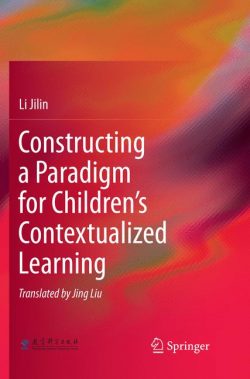This volume intends to re-establish social gerontology as a discipline that has pragmatic links to policy and practice. Collectively, the chapters enrich public debates about the moral, cultural and economic questions surrounding aging, thereby ameliorating the “problems” associated with aging societies. This volume is uniquely cross-cultural, theory-driven and cross-disciplinary. It fills a gap in the gerontological scholarship of the global south that is predominantly descriptive and empirical.
Based on original research, this volume examines in particular the sociological question of inequality and its intersection with age, gender, health, family and social relations. In the process, the studies herein highlight the unique historical, institutional and social systems that govern the subjective experience of aging in diverse contexts globally. Specifically, societies in transition including India, Lebanon, Nigeria, Japan, China, Israel and in Europe are studied while connecting the micro-social experience of aging (loneliness, wellbeing, discrimination, relationships and resilience) with larger temporal and political contexts. This exercise generates intellectual capital that reformulates links between aging research and policy in innovative ways.
Overall, the volume echoes the global scientific commitment to understand the socio-cultural process of aging in transitional societies and utilizes rich opportunities for cross-fertilization of ideas, disciplines and methods to advance the gerontological promise of critical inquiry, training and practice.
Part I: Frameworks and Integrative Approaches.- Chapter 1: Bridging the Gap: Theory and research in social gerontology- Tannistha Samanta.– Chapter 2: Who will care for the elder caregiver?: Outlining theoretical approaches and future research questions – Subharati Ghosh, Benjamin Capistrant and Greta Friedemann-Sanchez.- Chapter 3: Social Psychology and Gerontology: Integrating theory to explain and intervene in age prejudice and discrimination in Europe– Sibila Marques, Christin-Melanie Vauclair, Hannah J Swift, Christopher Bratt, Maria Luísa Lima & Dominic Abrams.- Part II: Culture, Contexts and Aging.- Chapter 4: Aging and Subjectivity: Ethnography, Experience and Cultural Context – Jason Danely.- Chapter 5- Neoliberalism and Resilience among older Yoruba adults in a semi-urban community, South West Nigeria– Ojo Melvin Agunbiade and Akanni Ibukum Akinyemi.- Chapter 6: Social Capital, interrupted: Sociological Reflections from old age homes, Ahmedabad- Tannistha Samanta and Jagriti Gangopadhyay.- Chapter 7: Engaging the Future as Ethnographic Object: Japan’s Aging Society, Crisis, Ontogenesis, and Cybernetics– Ender Ricart.- Part III: Health & Well Being.- Chapter 8: Antecedents of subjective wellbeing among older adults in Kerala, India– Irudaya. S Rajan, Anusmita Devi, Tannistha Samanta, Sunitha S.- Chapter 9: Early-life critical transitions in the relationship between current life stressors and depressive symptoms among community residing older Lebanese adults– ZMay Aydin, Abla Sibai and Anthony Rizk.- Chapter 10: Analysis of perceived health status among elderly in India: Gender and positional Objectivity- Zakir Husain and Dona Ghosh.- Chapter 11: The Relationship between Spatial Activity and Well-being: An Exploratory Geographic and Psychological Analysis–Michal Issacson, Hans-Werner Wahl, Noam Shoval, Frank Oswald and Gail Auslander.- Chapter 12: The Changes in Disability-Free Life Expectancy and Inter-Generation Support for the Elderly In China: 2005-2010– Wei Guo.- Chapter 13. Elderly inpatient care utilization and financing in India: Is there a gender difference?- William Joe, Abhishek Kumar and Udaya.S. Mishra.
Tannistha Samanta is an Assistant Professor in the discipline of Humanities and Social Sciences, Indian Institute of Technology, Gandhinagar. Samanta received her PhD from the department of Sociology at the University of Maryland, College Park, MD. Samanta specializes in blending both quantitative and interpretive approaches to study intergenerational relationships, health, social capital and aging focusing primarily on India.
This volume intends to re-establish social gerontology as a discipline that has pragmatic links to policy and practice. Collectively, the chapters enrich public debates about the moral, cultural and economic questions surrounding aging, thereby ameliorating the “problems” associated with aging societies. This volume is uniquely cross-cultural, theory-driven and cross-disciplinary. It fills a gap in the gerontological scholarship of the global south that is predominantly descriptive and empirical.
Based on original research, this volume examines in particular the sociological question of inequality and its intersection with age, gender, health, family and social relations. In the process, the studies herein highlight the unique historical, institutional and social systems that govern the subjective experience of aging in diverse contexts globally. Specifically, societies in transition including India, Lebanon, Nigeria, Japan, China, Israel and in Europe are studied while connecting the micro-social experience of aging (loneliness, wellbeing, discrimination, relationships and resilience) with larger temporal and political contexts. This exercise generates intellectual capital that reformulates links between aging research and policy in innovative ways.
Overall, the volume echoes the global scientific commitment to understand the socio-cultural process of aging in transitional societies and utilizes rich opportunities for cross-fertilization of ideas, disciplines and methods to advance the gerontological promise of critical inquiry, training and practice.
One of its kind research on social gerontology in India that combines theoretical frameworks with data driven empirical reflections
Is uniquely cross-cultural and draws on unconventional themes and cutting edge methods not commonly found in social gerontological research
Serves as an example to social science researchers in the pursuit of synergistic intellectual collaborations





